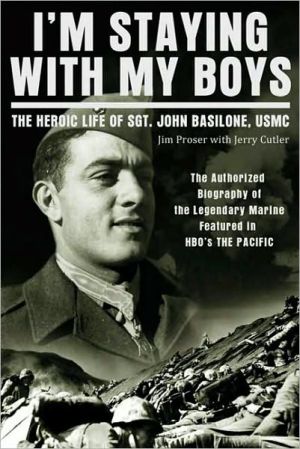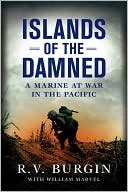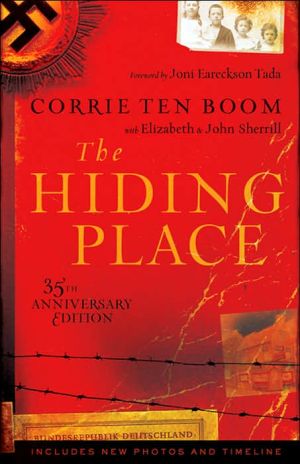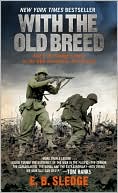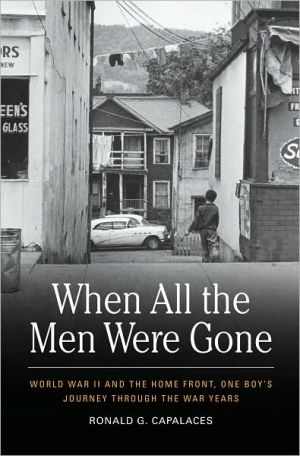Brigade: An Epic Story of Vengeance, Salvation, and World War II
November 1944. The British government finally agrees to send a brigade of 5,000 Jewish volunteers from Palestine to Europe to fight the German army. But when the war ends and the soldiers witness firsthand the horrors their people have suffered in the concentration camps, the men launch a brutal and calculating campaign of vengeance, forming secret squads to identify, locate, and kill Nazi officers in hiding. Their own ferocity threatens to overwhelm them until a fortuitous encounter with an...
Search in google:
It is the final weeks of World War II. His Majesty's Jewish Brigade, the only all-Jewish fighting unit in the war, goes into combat against the Nazis. In one glorious battle they beat the Nazis back and emerge victorious, only to be pulled from the front days later. It is here that the Brigade's real struggle begins. Amidst the chaos of post-war Europe, and under the noses of the occupying Allied armies, the men of the Brigade mastermind one clandestine operation after another, forming secret vengeance squads to assassinate Nazi officers in hiding, and engineering the rescue and transportation of Holocaust survivors to Palestine. Publishers Weekly Although the official history of the Jewish Brigade Group (a unit of some 5,000 Jews who fought with the British Eighth Army in Italy in the waning months of the conflict) has been written, Blum (Wanted! The Search for Nazis in America) breaks new ground by looking into the clandestine operations that occurred after the shooting had stopped. Once they learned the true extent of the holocaust, soldiers of the brigade began using intelligence reports to pinpoint the location of former SS officers and camp guards. The enraged Jewish troops took vengeance into their own hands, eventually slaying hundreds of Nazi death dealers. Blum follows the story of three men Israel Carmi, Johanan Peltz and Arie Pinchuk in detail, interviewed dozens of others, read unpublished personal memoirs and had Hebrew-language documents translated for him. During the war, the more daring Jewish soldiers formed a secret unit that appropriated British supplies trucks, weapons and food and diverted them to ships heading illegally for Palestine The plan included the "repatriation" of thousands of war orphans, who were clandestinely taken from displaced person camps and smuggled to Palestine. The underground Jewish Haganah figured prominently in these operations, which contributed directly to the creation of Israel. Blum, twice nominated for a Pulitzer as a New York Times investigative reporter, and now a Vanity Fair contributing editor, presents the material masterfully, building suspense and carefully documenting all the action. 16 pages of photos not seen by PW. (Nov. 2) Forecast: A BOMC and Traditions Book Club alternate, this book should get a push from Blum's journalistic cronies. Rights have been sold in Germany,Holland and the U.K., and to Miramax. Blum's The Gold of Exodus is currently in development with Castle Rock. Copyright 2001 Cahners Business Information.
Chapter One\ \ \ The troops were singing. The Hebrew songs had broken out spontaneously when the trucks approached the docks in Alexandria and the men saw the cargo ships that would take them across the Mediterranean to Italy. As they marched up the gangplanks, their voices grew louder and more spirited. It was a bright Tuesday morning, the final day of October 1944, and at last the Jews from Palestine were going to war.\ For the past three years, the volunteers in the three battalions that made up the British Palestine Infantry Regiment had spent their days doing monotonous guard duty in North Africa, chasing after goats stolen by mischievous Arab youths, and training in the hills north of Tel Aviv with outdated weapons. A world away the war in Europe had raged on. But just five weeks ago the three battalions had been ordered to Burg-el-Arab, a flat brushless stretch of desert between El Alamein and Alexandria, and had been swiftly re-formed and outfitted into the combat-ready Jewish Brigade Group.\ The historical significance of these soldiers preparing to go off to Europe with a golden Star of David on their blue shoulder patches was appreciated by the Brigade's new British commander. Brig. Ernest Frank Benjamin announced to his officers that "this is the first official Jewish fighting force since the fall of Judea to the Roman legions."\ But as the boats left the harbor, the men standing on the quarterdeck watched the Egyptian shore disappear and were excited by another knowledge. An army of Jews was finally on its way to confront an enemy that had set out to annihilate theirpeople.\ Sgt. Israel Carmi did not go on deck with the others as the SS Stafford went to sea. He remained on guard by the bunks.\ He had been ordered by the Haganah to smuggle two men to Europe along with the troops. Days ago he had stolen two uniforms, and his wife had tailored them at the kibbutz so that the impostors could march up the gangplank unnoticed with the rest of the soldiers.\ But Carmi knew the two would never be able to fool a British officer. So he stayed with them as they lay on their bunks. He would try to intervene before anyone could become suspicious. He was prepared, though, to do whatever was necessary to ensure that the two stowaways arrived in Europe. Carmi was a sergeant in the British army, but his allegiance was to the Haganah and the land, the eretz, he was leaving behind.\ That night, Capt. Johanan Peltz could not sleep. He went up to the deck and walked over to the rail. The moon was high in the sky and illuminated the sea with a silver sheen. The shoreline had receded from sight, and he was full of anticipation. He had spent seven years in this primitive, overbearingly hot part of the world, and he was glad to be leaving.\ It felt blasphemous to be happy in these grim times, but he could not help being filled with a sense of joy as he imagined returning to Zabiec, his family's estate in Poland, once the war was over. In his mind it was all very clear. He would ride in a carriage through the allée of chestnut trees to the front door of the big brick house. It would be the dinner hour, everyone certain to be home. He would walk up the wide stone steps and when the maid answered the door he would tell her not to announce him. Then he would stride across the checkerboard floor of the main hall, tall and erect in his British officer's uniform, and into the dining room, while his parents and grandfather, proud and elated, rushed from the table to greet the returning hero.\ Lt. Arie Pinchuk was in the radio room playing bridge. He, too, could not sleep. His stomach bubbled nervously. He was an officer in the Jewish Brigade, but he was traveling to Europe on his own private, and very vital, mission.\ He could not concentrate on the cards, either. He was thinking about what he would need to do, all the obstacles he would face. And from the depths of his own internal hell, he was silently demanding, Mama, Papa, Leah, what has become of you?\ It was nearly three A.M. when Pinchuk returned to his bunk, and by then the Stafford was rolling violently. The ship had headed into a storm. Waves crashed against the bow, and the swells surged over the deck. The winds were shearing. Yet the convoy continued on. All the men could do was hope the rough weather would soon improve.\ The Brigade. Copyright © by Howard Blum. Reprinted by permission of HarperCollins Publishers, Inc. All rights reserved. Available now wherever books are sold.
\ From Barnes & NobleThe Barnes & Noble Review\ In a crisp, informative, and gripping narrative, author Howard Blum tells the little-known story of how a brigade of Jews in Palestine was trained and equipped by the British and sent, in the closing months of World War II, into battle against the Nazi forces that had spent the previous decade rounding up and annihilating the Jewish people. \ In chronicling the delays, frustration, and clandestine operations that preceded and followed the Brigade's triumph of revenge, Blum draws the reader into empathy with these brave and motivated men, and with the personal struggles of three friends. Will Pinchuk find his sister, the last living member of his family in Poland? Will the Brigade be allowed to take well-deserved retribution after helping to liberate the Mauthausen concentration camp? Will they succeed in getting homeless refugees into the Promised Land, Palestine? Will the British finally show compassion?\ Blum, whose earlier bestseller, Wanted: The Search for Nazis in America, is being planned as a drama on NBC in the fall of 2001, has illuminated this little-known episode of World War II by thorough research and the priceless use of diaries written at the time by members of the Brigade. Their story shows clearly the entitlement Jews worldwide feel for creating and protecting the State of Israel. One also sees how this entitlement has morphed into the aggressive policies we see now on nightly newscasts. But the purity of motivation and action that Blum chronicles in The Brigade are well worth reading and remembering. (Linda Goetz Holmes)\ Linda Goetz Holmes is the author of Unjust Enrichment: How Japan's Companies Built Postwar Fortunes Using American POWs.\ \ \ \ \ \ Washington Post"[In] The Brigade ... Blum has written a powerful wartime saga that is also a meditation on morality."\ \ \ New York Times Book Review"Remarkable....The Brigade [is] an illuminating addition to the annals of World War II."\ \ \ \ \ Washington Post“[In] The Brigade ... Blum has written a powerful wartime saga that is also a meditation on morality.”\ \ \ \ \ New York Times Book Review“Remarkable....The Brigade [is] an illuminating addition to the annals of World War II.”\ \ \ \ \ Publishers WeeklyAlthough the official history of the Jewish Brigade Group (a unit of some 5,000 Jews who fought with the British Eighth Army in Italy in the waning months of the conflict) has been written, Blum (Wanted! The Search for Nazis in America) breaks new ground by looking into the clandestine operations that occurred after the shooting had stopped. Once they learned the true extent of the holocaust, soldiers of the brigade began using intelligence reports to pinpoint the location of former SS officers and camp guards. The enraged Jewish troops took vengeance into their own hands, eventually slaying hundreds of Nazi death dealers. Blum follows the story of three men Israel Carmi, Johanan Peltz and Arie Pinchuk in detail, interviewed dozens of others, read unpublished personal memoirs and had Hebrew-language documents translated for him. During the war, the more daring Jewish soldiers formed a secret unit that appropriated British supplies trucks, weapons and food and diverted them to ships heading illegally for Palestine The plan included the "repatriation" of thousands of war orphans, who were clandestinely taken from displaced person camps and smuggled to Palestine. The underground Jewish Haganah figured prominently in these operations, which contributed directly to the creation of Israel. Blum, twice nominated for a Pulitzer as a New York Times investigative reporter, and now a Vanity Fair contributing editor, presents the material masterfully, building suspense and carefully documenting all the action. 16 pages of photos not seen by PW. (Nov. 2) Forecast: A BOMC and Traditions Book Club alternate, this book should get a push from Blum's journalistic cronies. Rights have been sold in Germany,Holland and the U.K., and to Miramax. Blum's The Gold of Exodus is currently in development with Castle Rock. Copyright 2001 Cahners Business Information.\ \ \ \ \ Library JournalBlum follows up his best-selling Wanted: The Search for Nazis with this story of His Majesty's Jewish Brigade, the only all-Jewish force that fought during World War II. Copyright 2001 Cahners Business Information.\ \ \ \ \ School Library JournalAdult/High School-There is a perception that during the Holocaust, the Jews rarely physically fought back against the Nazis. The most avid readers of World War II books know that resistance did occur (the best known is the Warsaw Ghetto uprising), but it was not enough to change the course of the genocide. The Brigade tells a different story. A 5000-man "Jewish Brigade" was formed from settlers in Palestine, but it was not until the waning days of the war, in November 1944, that the British sent it to fight. This account is told from the perspective of three soldiers and relies heavily on interviews the author conducted with them. It takes readers from the early days of the brigade, through the frustration of the soldiers who were sitting out the war, to the combat operations of the closing days of the war in Italy. The Jewish Brigade had little impact on the outcome of World War II, but its existence was critical to the future state of Israel. Almost from the very beginning, it was involved in smuggling Jewish refugees out of Europe and into Palestine. This book is not a standard military history, but is written more like a novel. It is packed with detail but moves along quickly. It will have great appeal to those students who want to explore beyond the standard histories of the period.-Robert Burnham, R. E. Lee High School, Springfield, VA Copyright 2002 Cahners Business Information.\ \ \ \ \ Kirkus ReviewsAn action-packed, real-life drama featuring the first Jewish army to go into combat for 2,000 years. Blum (The Gold of Exodus, 1998, etc.) writes more like an omniscient author of fiction than as a historian, and with good reason. In chronicling this little-known niche of WWII, the former New York Times journalist interviewed the living members of His Majesty's Jewish Brigade, a Jewish cadre from British-controlled Palestine who fought with honor in Italy at the close of the war. While many of his scenes are worthy of a blockbuster movie-as when Peltz, a tough-as-nails brigade member, reconnoiters a German encampment in the dead of night-the deeper story lies in the emotions these Jews felt about their relation to the Holocaust. Many of them, recalling families slaughtered in concentration camps, saw their arrival in Germany in 1945 as payback time. Between battles, Blum evokes the men's thoughts. They wonder about their families, who lived in countries formerly occupied by Germany, and blame themselves for not being there to save their parents.That sorrow quickly turns to anger, however, and once the war is over the brigade seeks vengeance. While the soldiers are on guard duty on the Austrian border, a covert group of Jews hunts down and executes former SS members, then gradually form an underground railroad that shuttles Jews out of Europe toward Palestine. Interspersed with these events are many stories like the one about one of the men's sisters who escaped the Nazis in the Ukraine to become a partisan and eventually a nurse in the young state of Israel. Her trajectory is replicated for nearly all the brigade members, who wind up using their military talents in Israel's wars withits Arab neighbors. Military historians, fans of war stories, and lovers of Judaica: all will all be pleased.\ \




